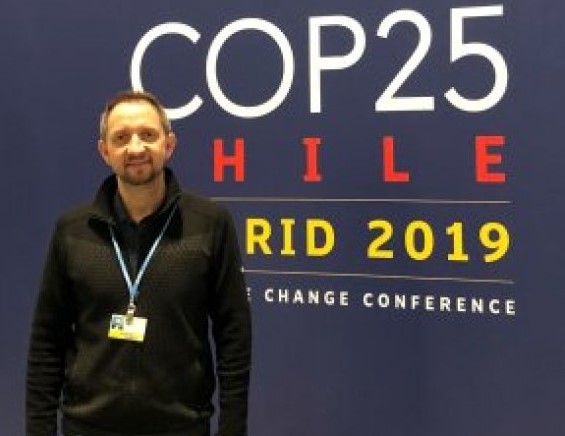The climate conference in Madrid failed to reach an agreement. Yet a growing coalition of countries, NGOs and companies are now supporting what are termed ‘nature-based solutions’, says GIS professor Martin Herold, who attended the climate summit.

‘The main negotiation issue in Madrid was carbon trading, or how to create market conditions that help lower global CO2 emissions. There was no final agreement on this. But alongside the primary goal of reducing the use of fossil fuels, there is a growing understanding that we need “negative emissions”. The only solution that has been proven to work so far for carbon sequestration on a large scale is nature itself. Nature already gives us “ecosystem services” by compensating for the increase in greenhouse gas emissions and tempering climate extremes.’
What are nature-based solutions?
‘Nature-based solutions encompass a wide range of efforts to protect and restore ecosystems in order to store CO2, retain biodiversity and mitigate climate-change impacts. Many countries are starting to make plans for reforestation, less deforestation and landscape restoration. The Dutch government also wants to store more CO2 in agricultural land as part of its circular agriculture policies. Raising water levels in peat wetlands in order to reduce CO2 emissions from the soil is another interesting measure. These solutions are not necessarily new, but they exploit natural processes in order to combat climate change.’
The only proven solution for large-scale carbon sequestration so far is nature itself
Do companies also want to invest in nature-based solutions?
‘We noticed increasing interest from the private sector in Madrid. Timber companies are reforesting large areas and oil companies also want to invest in this kind of thing. These developments point to the evolving interest from many actors, but they also raise questions and criticisms. Some environmental NGOs, for example, say that the new forests are monocultures with limited biodiversity and resilience. The NGOs are also concerned that the oil companies are using the nature-based solutions debate to distract attention from the foremost climate-change solution: rapid reductions in carbon emissions from fossil fuels.’

